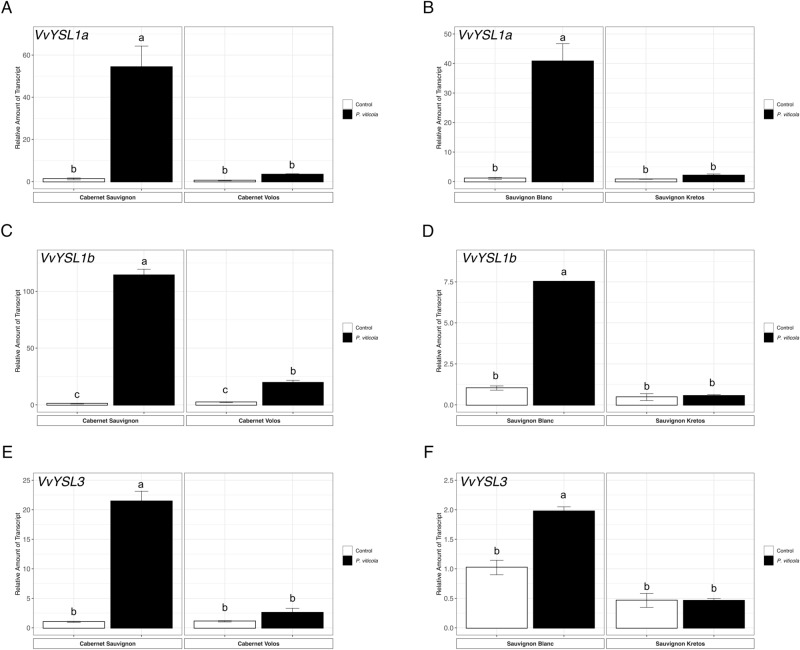Figure 6.
Quantitative RT-PCR analyses of genes possibly involved the Fe partitioning (VvYSL1a, VvYSL1b and VvYSL3) in grapevine leaves. (A) Assessment of VvYSL1a gene expression in Cabernet Sauvignon and Cabernet Volos, both non-inoculated and inoculated with P. viticola. (B) Assessment of VvYSL1a gene expression in Sauvignon Blanc and Sauvignon Kretos, both non-inoculated and inoculated with P. viticola. (C) Assessment of VvYSL1b gene expression in Cabernet Sauvignon and Cabernet Volos, both non-inoculated and inoculated with P. viticola. (D )Assessment of VvYSL1b gene expression in Sauvignon Blanc and Sauvignon Kretos, both non-inoculated and inoculated with P. viticola. (E) Assessment of VvYSL3 gene expression in Cabernet Sauvignon and Cabernet Volos, both non-inoculated and inoculated with P. viticola. (F) Assessment of VvYSL3 gene expression in Sauvignon Blanc and Sauvignon Kretos, both non-inoculated and inoculated with P. viticola. The data were normalised to the tubulin and EF1α housekeeping gene. The relative expression ratios were calculated using untreated parental genotypes as a calibrator sample. The values reported are means ± SE of three biological replicates. Different letters indicate significant differences according to one-way ANOVA with Tukey post hoc tests (p < 0.05).

